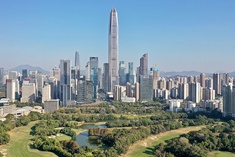
Chinese History 101 #11: Modern China
Last updated: Sunday December 26th, 2021
Report this blog
- From where we left off
- China - Transition and the Deng era (1976 - 1989)
- Taiwan - post-Chiang authoritarian era (1975 - 1991)
- China - Jiang Zemin & the 3rd Generation (1989 - 2002)
- China - Hu Jintao & the 4th Generation (2002 - 2012)
- China - Xi Jinping & the 5th Generation (2012 - present)
- Taiwan - Democratic era (1991 - present)
- The end
From where we left off
In my previous blog, I stopped at a time when Chiang Kai-shek and Mao Zedong died in 1975 and 1976 respectively. In this final blog of the series, I will go through the most recent history of China and Taiwan since the late 1970s.
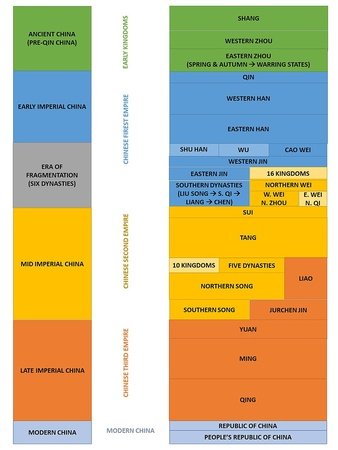
China - Transition and the Deng era (1976 - 1989)
Days after Mao Zedong death, Communist Party seniors rushed to arrest the Gang of Four before they got hold of power. Hua Guofeng, who inherited from Mao, soon gave up his position for the return of Deng Xiaoping in 1978, along with his allies including Hu Yaobang and Zhao Ziyang.
The first thing Deng did was righting the wrongs of the Cultural Revolution. He dismantled the far-left Maoist policies and rehabilitated victims of more than 3 million "unjust, false, wrongful cases". He invalidated and condemned the Cultural Revolution as a "domestic havoc" and "an appalling catastrophe". But he stopped short of denouncing Mao, whom Deng famously called "7 parts good, 3 parts bad". He put the blame of the Cultural Revolution squarely at the Gang of Four and Lin Biao.
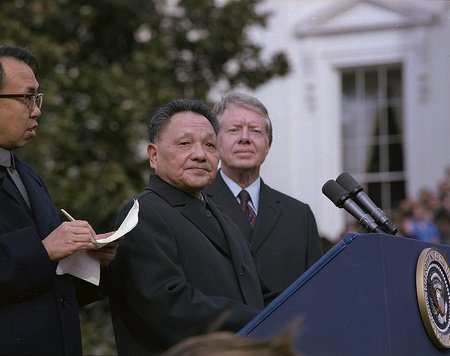
In late 1978, Deng embarked on the Reform and Opening-up Policies, which decentralised government controls and promoted industrial reforms and entrepreneurship. Deng advocated Four Modernisations (agriculture, industry, defence, science/technology) as a way to rejuvenate China's economy and reach a goal of "moderately prosperous society". His famous quote "regardless of black or white cats, the one that can catch mice is a good cat" was interpreted as that both socialism and capitalism could be adopted as long as it increased productivity and improved livelihood of the people.
As part of the reform, four Special Economic Zones, namely Shenzhen, Zhuhai, Shantou and Xiamen, were initially set up to attract foreign investments by running capitalist system without strict government regulations. In another famous quote of Deng "to let a small group of people to get rich first", the government allowed the coastal urban population to get rich first in a hope that it would eventually drive development of the entire country.
The result of Deng's reform was significant. The economy grew rapidly; living standard, life expectancy and literacy rate all improved. However, the reform was blamed for widening wealth inequality, environmental pollution, rampant corruption and widespread unemployment from layoffs at inefficient state-owned enterprises. To control overpopulation and rural poverty, the controversial one child policy was introduced, which had generational impact on the Chinese society.
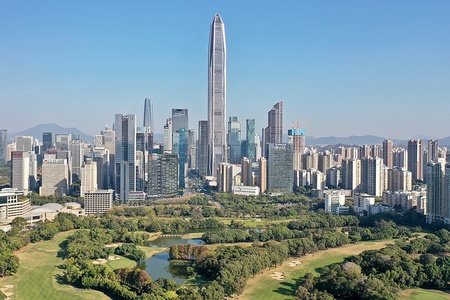
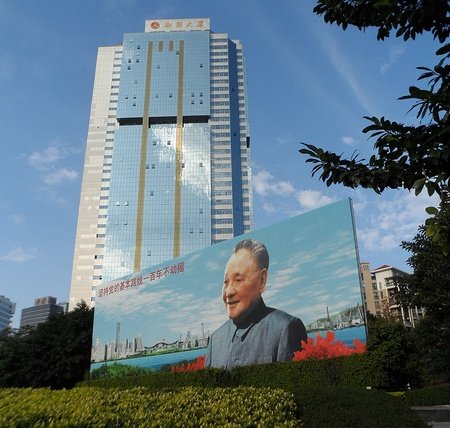
Politically, Deng proposed the idea of "collective leadership" by the members of the Politburo Standing Committee to avoid dictatorship seen in the Mao era. He called for political reform to boost the administrative efficiency and eliminate bureaucracy. But all these were within the one-party system and he opposed to Western-style democracy. He coined this as Socialism with Chinese characteristics.
However, political reform came to a halt after student demonstrations in late 1986, which was quickly dissipated. Reformist Hu Yaobang was perceived as being overly liberal and was replaced by Zhao Ziyang as the General Secretary of CCP. The left-wing conservatives then launched the "Anti-Bourgeois Liberalisation Campaign" in 1987, only to be stopped by Zhao who convinced Deng to avoid the leftists taking over the reform agenda.
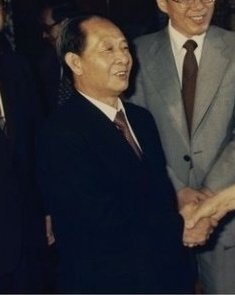
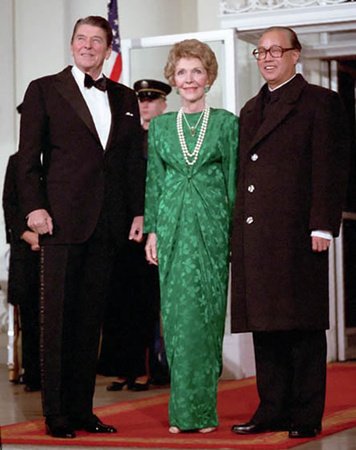
In April 1989, Hu Yaobang passed away, triggering weeks of student protests at Tiananmen Square in Beijing demanding political reforms and democracy. The government was initially divided on how to deal with the protests. The progressive camp led by Zhao Ziyang supported continued dialogue and a soft approach with the students, while hardliner conservatives who opposed the movement rallied behind Premier Li Peng.
The situation escalated when the students began hunger strike in early May during the historical state visit by Mikhail Gorbachev, the first by a Soviet leader since the Sino-Soviet split in the late 1950s. The student protest gained international attention as a result. Premier Li Peng met the student leaders on 18 May but the discussion was confrontational and did not make any progress. In the early morning of 19 May, Zhao Ziyang met the students at Tiananmen Square and made an emotional plea to the students to end the hunger strike and not to sacrifice themselves. This would be his last public appearance; Zhao was ousted and put under house arrest until his death in 2005.
On the next day, Premier Li Peng with the support of Deng Xiaoping declared martial law and started mobilising troops to suppress the demonstrations. In the early morning of 4 June, tanks entered Tiananmen Square and soldiers shot at the students and protesters, in what is known as the Tiananmen Square Massacre. The exact death toll is still unknown today, with estimation ranging from few hundreds to few thousands. Following the massacre, 21 student leaders were listed as the most wanted, of which only 7 successfully fled overseas with help from Hong Kong people and Western intelligence agencies. The international communities universally condemned the Chinese government, and the West imposed arms embargoes on China as a result.
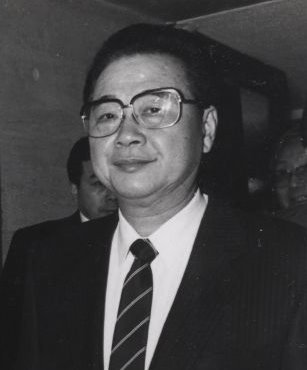
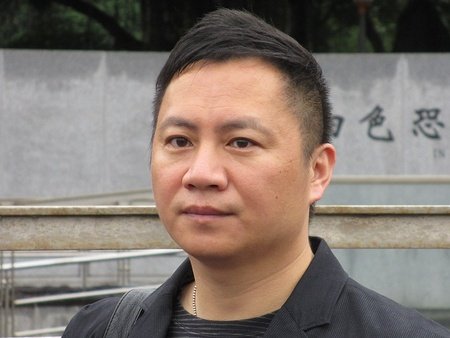
Taiwan - post-Chiang authoritarian era (1975 - 1991)
After the death of Chiang Kai-shek in 1975, vice-president Yen Chia-kan completed Chiang's remaining terms before Chiang's son Chiang Ching-kuo was elected in 1978 as the president (and re-elected in 1984) by the National Assembly (the one where legislators from the mainland stayed on since 1948, see my previous blog).
Chiang Ching-kuo continued his father's autocratic one-party rule in Taiwan, with the crackdown and jailing of opposition activists in Kaohsiung Incident in 1979. However, he started loosening control by appointing local Taiwanese in the government. He promised that the next president would not be from the Chiang's family, and handpicked Lee Teng-hui as his successor. He launched major infrastructure projects, contributing to Taiwan's phenomenal economic development and making it one of the Four Asian Tigers.
Chiang finally lifted martial law in 1987, allowing opposition Democratic Progressive Party (DPP) to be formed legally for the first time. Restriction on freedom of speech and travel ban to mainland China were lifted in the years followed. Full democracy was achieved with the first free-and-fair election of the National Assembly in 1991 and the Legislative Yuan in 1992.
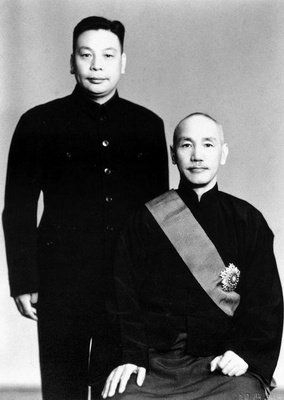
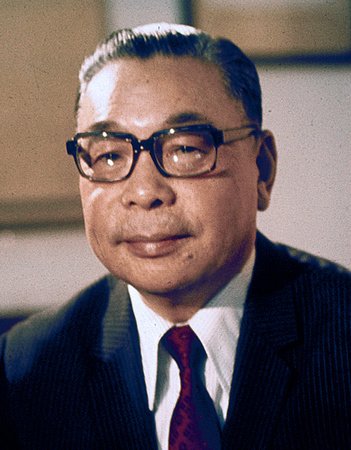
China - Jiang Zemin & the 3rd Generation (1989 - 2002)
After the events at Tiananmen in 1989, Deng Xiaoping stepped away from public view and fully retired. Power passed to the third generation of leadership led by Shanghai clique leader Jiang Zemin, who was recognised for decisively shutting down a liberal newspaper and handling similar student protests in Shanghai in 1989 before things escalated. However, with Premier Li Peng and other conservatives still in power, Deng's Reform and Opening-up program went into stagnation.
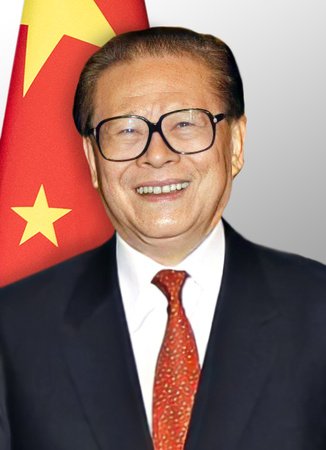
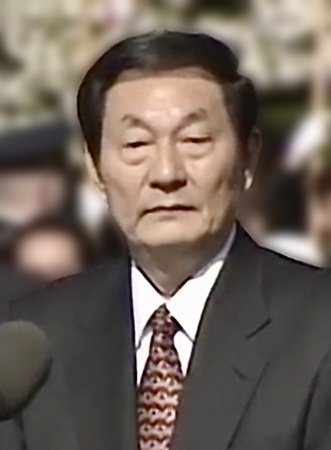
A critical point in Chinese history came when the retired paramount leader Deng Xiaoping toured Southern China in 1992. During the tour, he told the military leaders that "those who do not promote reform should be brought down from their leadership positions", forcing Jiang Zemin to support and continue the Reform and Opening-up program. The tour saved China's economic reform and the capital markets (Shanghai and Shenzhen Stock Exchanges). Reformist Zhu Rongji eventually replaced Li Peng as Premier in 1998.
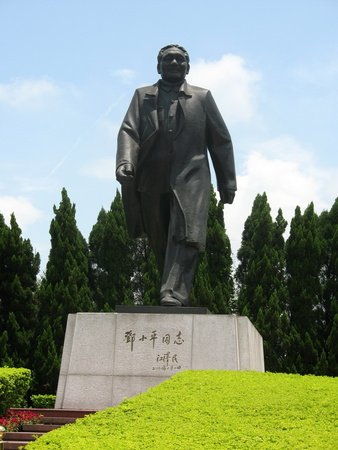
During Jiang and Zhu's time, China experienced strong economic growth, despite the Asian Financial Crisis in 1998. However, rampant corruption, increasing unemployment, widening urban-rural wealth gap and environmental pollution continued to plague China.
In the lead up to the Taiwanese presidential election in 1995-96, China tried to intimidate Taiwan into not electing a pro-independent president by firing missiles across the Taiwan Strait. The move backfired as it sowed increased distrust with the US and China's neighbours. The Sino-US relations deteriorated further after the US bombing of the Chinese embassy in Belgrade in 1999 during the Kosovo War, and the collision of US spy plane with Chinese fighter jet near Hainan Island in 2001.
In 1997, Hong Kong was peacefully handed over by the UK to China under Deng's theory of "One Country, Two Systems", which promised to maintain the existing economic, social and judicial systems in Hong Kong for 50 years (or in Deng's words, "horses keep racing, people keep dancing"). Macau, the last remaining colony in China, followed suit in 1999, ending over four centuries of Portuguese rule (see my 6th blog).
China - Hu Jintao & the 4th Generation (2002 - 2012)
When Deng Xiaoping handed over power to the third generation, he also set up the fourth generation for a further future transition. Hu Jintao, who was once the youngest member of the Politburo from the Youth League Faction, succeeded Jiang Zemin as the president, while Zhu Rongji's right hand man Wen Jiabao succeeded as the premier. The two leaders, known as the Hu-Wen Administration, were seen as reform-orientated and more open-minded than their predecessors.
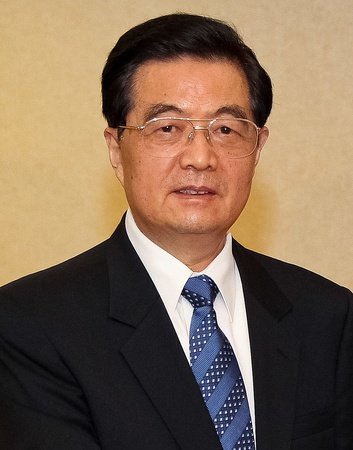
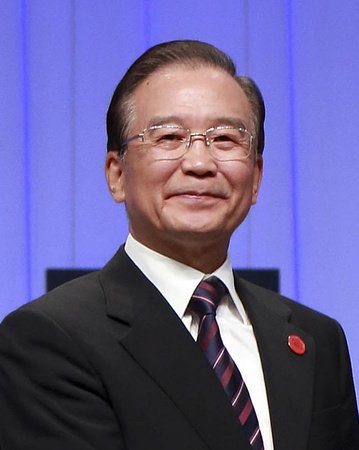
They inherited a government with severe corruption and social/environmental problems. Hu slowly consolidated power with ongoing struggle against Jiang Zemin's allies from the Shanghai clique. During their time, the Chinese economy experienced double-digit growth year on year, overtaking Japan as the world's second largest economy by 2010. In 2003, China successfully sent an astronaut into space, the third country to achieve such feat independently. In 2008, Beijing hosted the Summer Olympics, and in 2010, Shanghai held the World Expo for the first time.
However, amid all these successes, China asserted tighter control over its people in the name of achieving a harmonious society, such as hiding the SARS outbreak in late 2002, crushing the Tibetan uprising in 2008, jailing Nobel peace laureate Liu Xiaobo, censoring internet access via the Great Firewall of China and deploying "50 Cent Party" to spread propaganda over social media in favour of the CCP etc.
China - Xi Jinping & the 5th Generation (2012 - present)
Xi Jinping, son of former party elder Xi Zhongxun, rose to power in 2012 after a power struggle against his fellow "Princeling" Bo Xilai. The Youth League Faction leader Li Keqiang was appointed as the premier, but he was overshadowed by Xi who asserted himself as the core leader. Xi purged his political rivals in a major anti-corruption campaign. Xi then had the constitution amended in 2018 to remove term limits for the president, overturning rules set out by Deng Xiaoping and effectively enabling him to rule for life. He built a cult of personality around himself, something not seen since Mao's time during the Cultural Revolution.
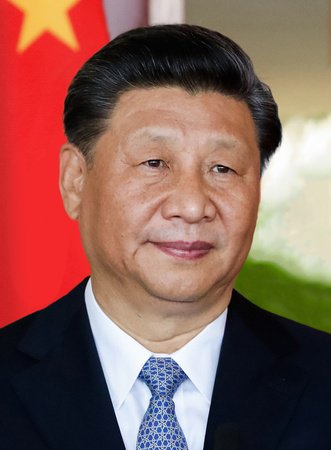
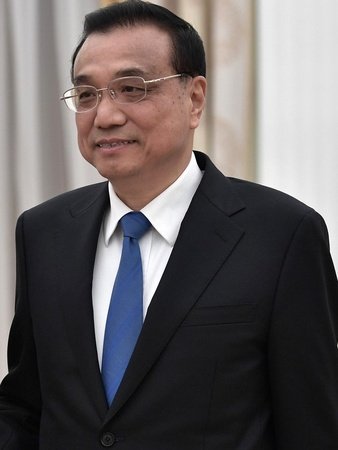
As Xi Jinping continued to consolidate power domestically, he gradually abandoned the previous passive diplomatic principles set by Deng Xiaoping and adopted the aggressive "wolf warrior diplomacy", such as constructing artificial islands in the South China Sea. In order to break through American containment of China in the first island chain, Xi launched the "One Belt One Road initiative" to make infrastructure investment and assert its influence in many Afro-Eurasian countries.
The Chinese government tightened control over its people and human rights violation worsened, including locking up over a million ethnic Uyghurs in Xinjiang re-education camps since 2017, cracking down on massive protests in Hong Kong in 2019 and imposing national security law in 2020 (see my other blog), implementing mass surveillance system and the "Social Credit System" to keep the whole population under close watch.
The Sino-US relation deteriorated further over Donald Trump's trade war since 2018, and the ongoing argument over the origin of the COVID-19 virus since the outbreak in Wuhan in late 2019. The relative success in China's containment of the pandemic compared to the huge death toll elsewhere reaffirmed many's beliefs that the Chinese system is superior to the Western one that values liberty and democracy above people's health and safety.
Taiwan - Democratic era (1991 - present)
Since the democratisation of Taiwan in the early 1990s, it was plagued by political corruption or "black gold" phenomenon. The 2000 presidential election saw the first transfer of power from the Nationalist (KMT) to the DPP when Chen Shui-bian narrowly won in a 3-way contest. Chen was arrested and jailed on corruption charges after he stepped down in 2008.
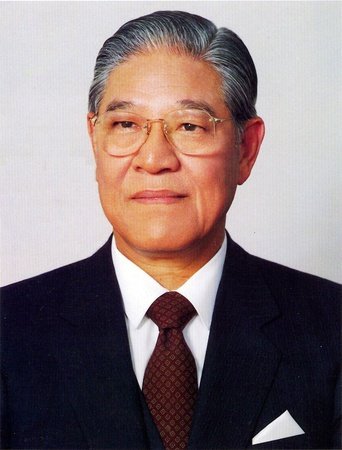
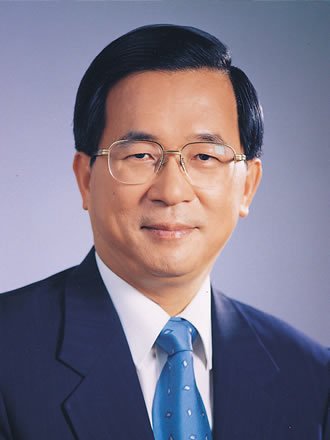
Power returned to the KMT after Ma Ying-jeou won the 2008 presidential election. He fostered a warmer relationship with mainland China, including opening up the Three Links (postal, transportation and trade) between Taiwan and China, and the historical meeting with Xi Jinping in 2015, a first between leaders of CCP and KMT since the Chinese Civil War.
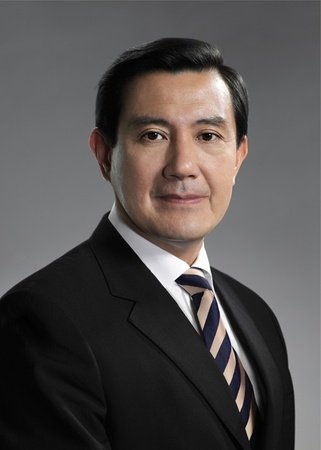
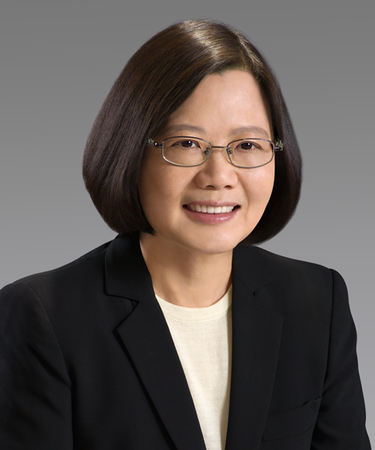
Taiwan politics have been dominated by Cross-Strait relations and its independence movement. When Tsai Ing-wen from the DPP became the first female president in 2016, she rejected the "1992 Consensus" between KMT and CCP which vaguely recognised the "one China, different interpretations" stance. After years of democratisation and localisation, Taiwan has become a free and progressive society, e.g. the first Asian country to legalise same-sex marriage in 2019. Politically and culturally (although not economically), Taiwan is moving further away from China, and peaceful reunification with China becomes increasingly impossible. Although the majority still prefer the status-quo, the younger generations are now overwhelmingly pro-independence, and most identify themselves as Taiwanese rather than Chinese.
The end
We are finally at the end of the series. It has been a mammoth task and much harder than I expected. I originally thought that I could finish it all in 3 to 4 blogs but ended up writing 11. These are somewhat more than an "101 introduction" as I originally planned, and I may have lost interest from many of you over these lengthy blogs. In short, Chinese history can be summarised in just three words, "long and sad".
Now that you are an expert in Chinese history, why not test your knowledge by trying out my quizzes?
| Period | Years | English | 中文 |
|---|---|---|---|
| Prehistoric times to Warring States | 2582 BC - 221 BC | Quiz #1 | 小測驗(一) |
| Qin to Han Dynasty | 221 BC - 220 | Quiz #2 | 小測驗(二) |
| Three Kingdoms to Northern & Southern Dynasties | 184 - 589 | Quiz #3 | 小測驗(三) |
| Sui to Five Dynasties & Ten Kingdoms | 581 - 960 | Quiz #4 | 小測驗(四) |
| Song to Yuan Dynasty | 960 - 1368 | Quiz #5 | 小測驗(五) |
| Ming to early Qing Dynasty | 1368 - 1796 | Quiz #6 | 小測驗(六) |
| Late Qing Dynasty | 1796 - 1912 | Quiz #7 | 小測驗(七) |
| Republic of China | 1911 - 1936 | Quiz #8 | 小測驗(八) |
| World War II | 1937 - 1945 | Quiz #9 | 小測驗(九) |
| Communist China | 1945 - 1976 | Quiz #10 | 小測驗(十) |
| Modern China | 1976 - present | Quiz #11 | 小測驗(十一) |

One question: If the Hu-Wen Administration clamped down on opposition and increased censorship so much, why were they seen as more open-minded? Is it just that they are more popular due to the successful economic growth of the 2000s, or were there serious reforms to the Chinese government that were passed during this period?
To answer your question, Hu-Wen were more open-minded relatively to Jiang or Xi:
Hu came from engineering background and Wen was a geologist. They emphasised on scientific development rather than political ideology.
Hu never asserted himself as the paramount leader, but rather ruled under Deng's concept of collective leadership.
Wen actually accompanied Zhao Ziyang to Tiananmen Square back in 1989, but somehow survived politically (he was accused of selling out on his former boss though). He was highly popular while in office, although his family was accused of being highly corrupted.
Unlike Deng who stayed on after retirement and set up succession plan for the next two generations, or Jiang who clung on to power as the head of the military after stepping down as president and implanting his highly corrupted Shanghai clique in high positions, or Xi who wants to rule for life, both Hu and Wen "stepped down naked" after their terms finished.
Compared to the Umbrella Revolution in 2014 and Anti-Extradition Bill Protest in 2019 where the Hong Kong government crushed the protests brutally under Xi Jinping, the Anti Moral and National Education Protest in 2012 was a relative success in forcing the government to yield to the protesters' demands.
Although Hu-Wen crushed the Tibetan uprising in 2008, it was no match to the mistreatment of Uyghurs under Xi Jinping.
Hope these help answering your question.